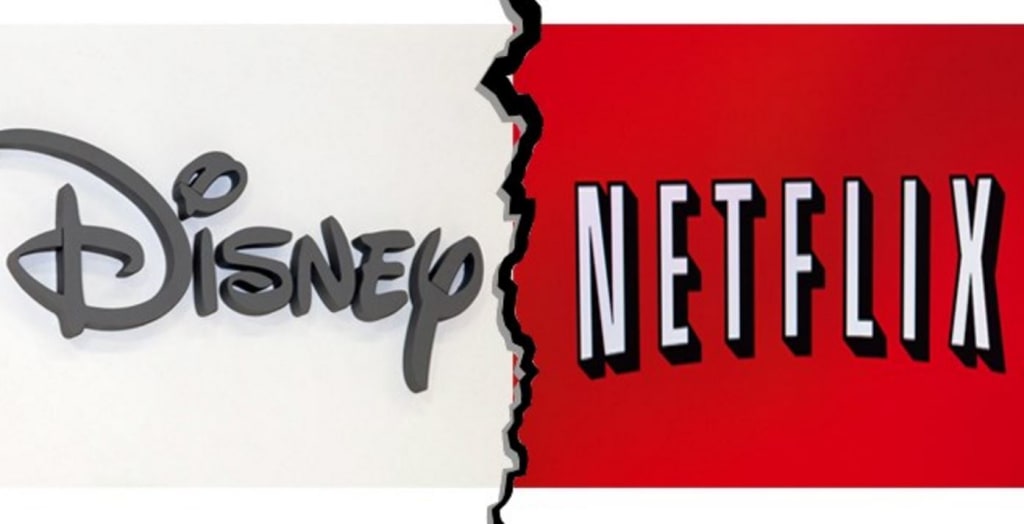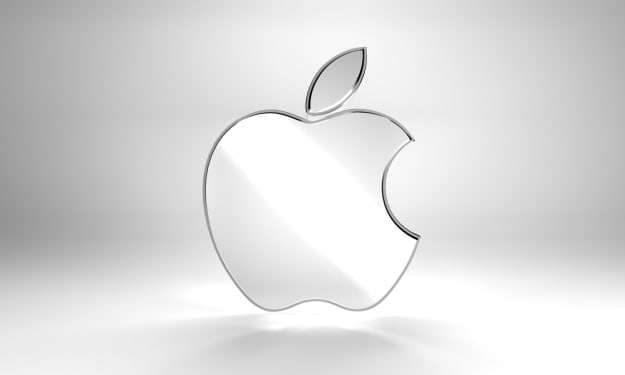Disney vs. Netflix
Who comes out on top?

Media Industry
The media industry is certainly becoming a competitive environment with different technology and content companies leading the charge. At the current moment, Netflix is the top dog, while every other company in the industry is trying to gain market share. However, over the years as we've learned through ratings, content is king.
One of the greatest content producers, HBO, began in the early 90s to produce original content that was so enticing it encouraged consumers to subscribe. This trend has continued into the present day. In 2017, HBO's subscribers made up 31% of US market, which helped account for HBO's 142 million total users.
Netflix, on the other hand, took a different approach. Netflix started in 1997, with the original business model being a DVD rental service and a streaming service which showcased content which was licensed to Netflix. However, presently Netflix can be argued to be a content company, since producing many fan-favorite TV shows and movies. A pivot of this magnitude had a lot to do with money. Netflix stated in Quarter one 2017 that it had the obligation to pay $15 billion in content spending. Many properties purchased are on short-term leases, with an example from the past being Disney's one-year deal that amounted to $200 million in 2011. This is almost negligible compared to 2018's version of Netflix, which is projected to spend $8 billion in original content that has the ability to stay on the platform forever.
Disney is regarded to be the best content producer. Disney's heavy hitters being Lucasfilm Ltd, Pixar Animation Studios, DreamWorks Pictures Films, and Marvel Studios. Disney started out in its approach like most media companies. Although a shift is occurring, as Disney begins to focus on its streaming service, Disney is planning on capitalizing on the growth of mobile viewing that a streaming service offers.
Fox Deal
Disney may have the best chance of taking down the giant Netflix. Disney's current plan is to release a streaming service in 2019. Questions regarding popularity began to flourish as a frenzy of content players were beginning discussions of creating similar services. However, the acquisition of 21st Century Fox has the potential to swing the pendulum in Disney's direction. The outcome still remains uncertain whether the acquisition goes through, however, a strong success rate remains. The deal would include assets such as:
- 30% stake in Hulu
- Fox's movie studios (Avatar & X-Men franchises)
- Fox's TV studio (Modern Family, This Is Us, The Simpsons)
- Cable networks (FX, FXX, FXM, National Geographic)
- 22 regional sports networks
- 39% stake in SKY
Gaining a 30% stake in Hulu would make Disney the majority shareholder with an ownership of 60%. As Disney begins to roll out its new streaming service, the possibility of Hulu being around in the future will be affected. The platform can either merge onto the platform Disney creates or will remain its own separate service. The former is most likely to occur because Disney wants to get all its content onto one platform to make consumers comfortable with the service and cost.
Fox's movie studios, TV studios, and cable networks offer additional content that can be placed on the streaming service. In 2017, all of Fox's movie studios earned $1.4 billion in the box office.
The 22 regional sports networks are unlikely to go through due to antitrust policies. Reports have shown Disney is willing to sell off this asset to make the deal go through. However, if it were to be passed including these networks, the possibilities may be endless. Many technology companies are attempting to encourage viewership of live sports. Disney can license these networks to the likes of a Facebook, Snapchat or Twitter. Another option can be to display live coverage of sports games on the streaming service. In obtaining these assets, the possibility of resurrecting ESPN can be possible.
Media companies are trying to find growth at all costs. This acquisition primarily is to obtain new growth opportunities. However, the common-sense approach of going international has not been in most media company's pipelines. A 39% stake in Sky offers this growth to Disney. Sky is a media company that offers programming in many European countries, shown by its 21 million subscribers.
Conclusion
The competition between Disney and Netflix heavily relies on the Fox Deal. Disney's focus appears to be on the streaming service. With that being said, in order to succeed in the space, it is necessary to have premium content, as we saw in the HBO and Netflix examples. All of the assets from Fox and Disney's content presents consumers with a dilemma of whether to choose Netflix or Disney's new service.
Sources:
-Seekingalpha
-Statista
-Investopedia
About the Creator
Dylan Baldessari
I am a college student, who is passionate about anything finance related. Hope you enjoy the content






Comments
There are no comments for this story
Be the first to respond and start the conversation.